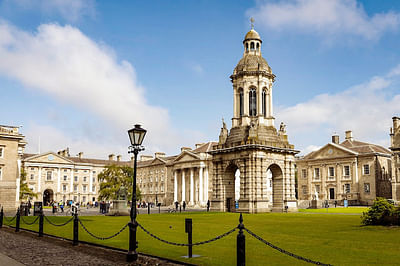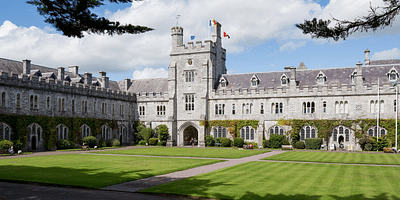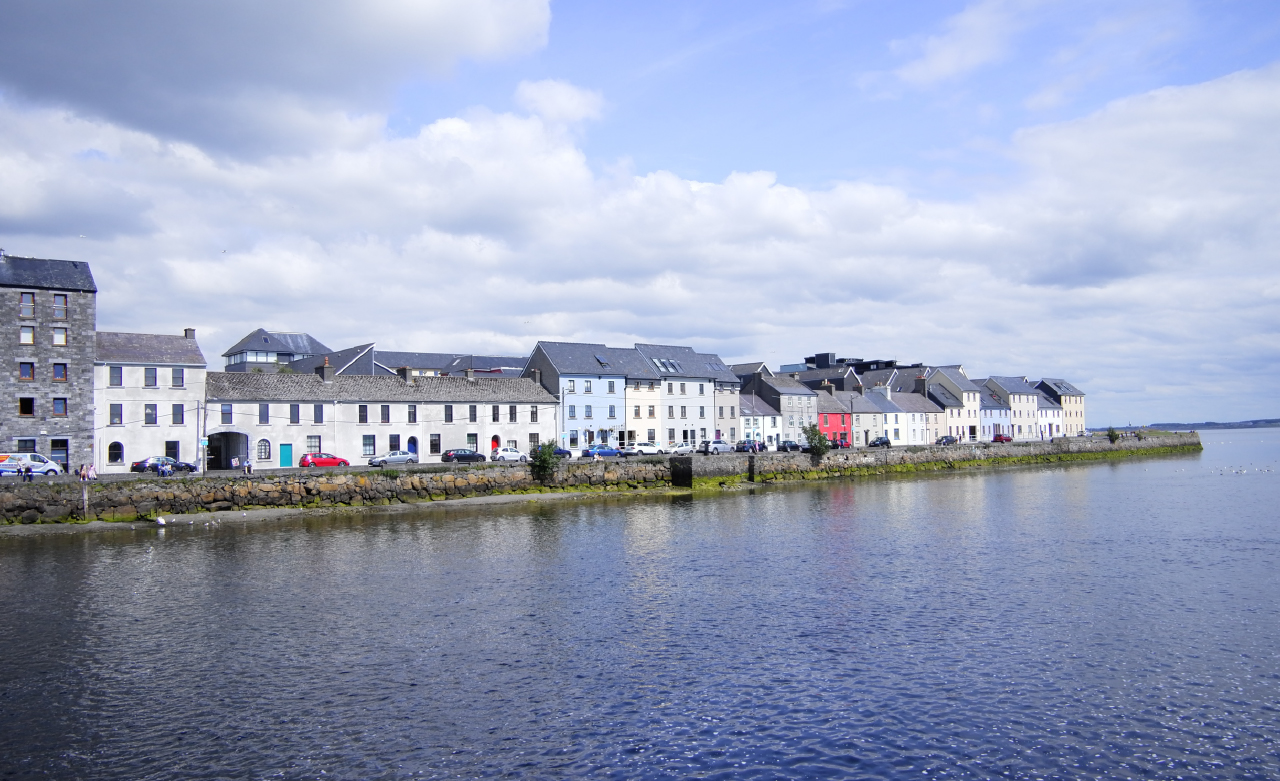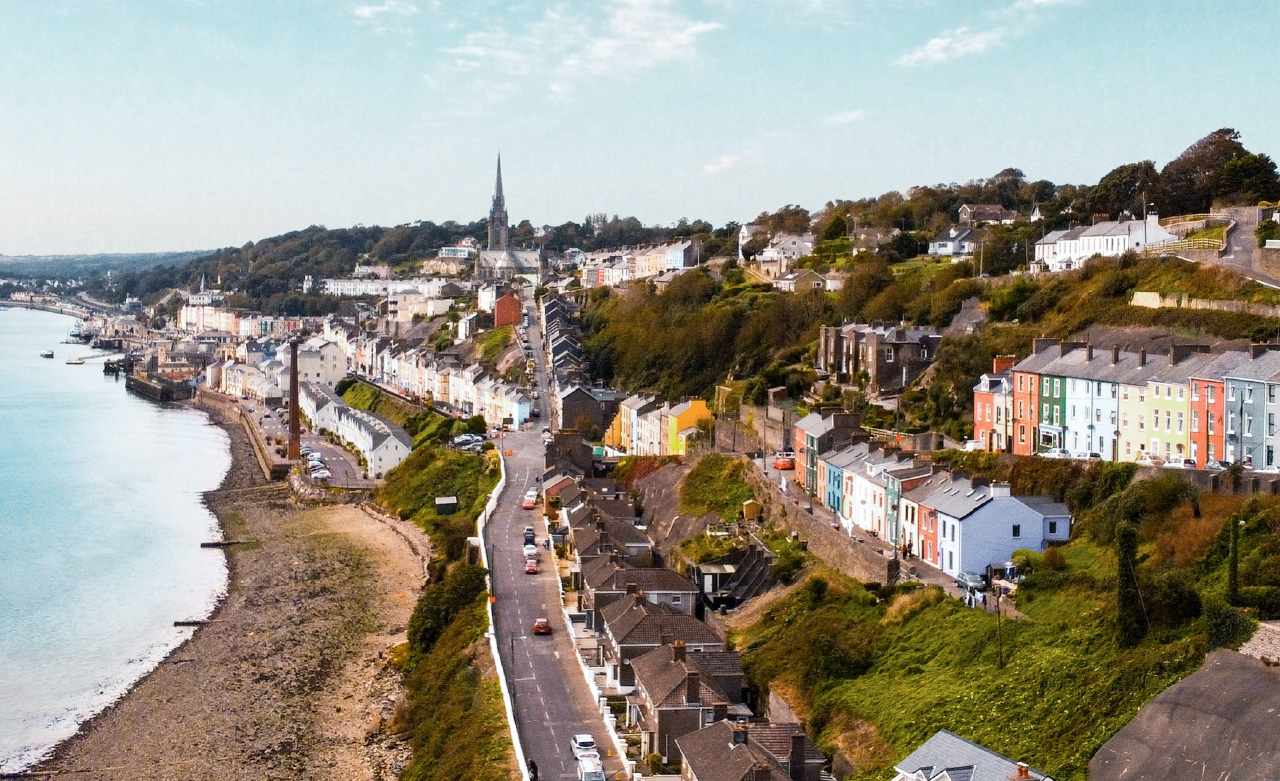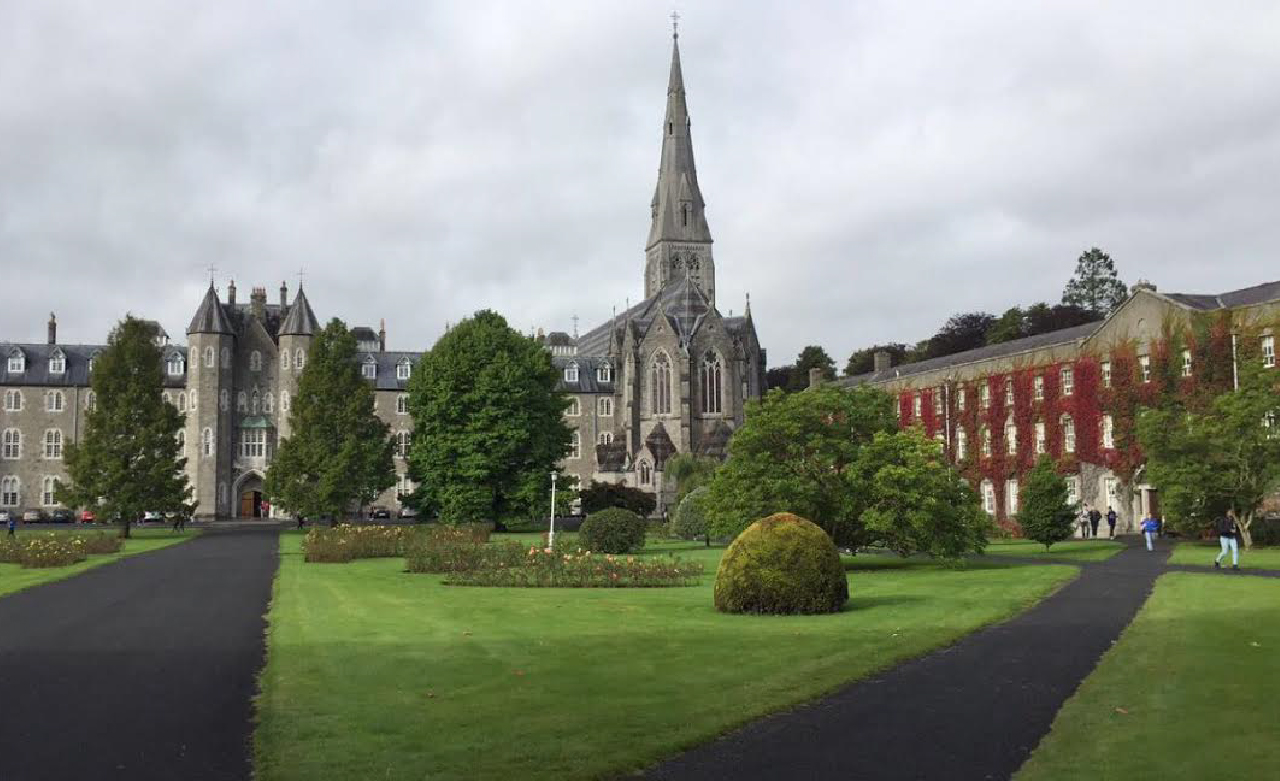Study in Ireland

Studying abroad in Ireland presents a unique opportunity for international students seeking a high-quality education in a vibrant and welcoming environment. The Irish education system is celebrated for its rigorous academic standards and innovative research, with institutions offering a diverse array of courses across various disciplines. Beyond academics, Ireland boasts a rich cultural heritage, stunning landscapes, and a friendly atmosphere that fosters personal growth and social connections. With favourable post-study work opportunities and a relatively affordable cost of living compared to other Western nations, studying in Ireland is not only an enriching educational experience but also a gateway to lifelong memories and career prospects.
Key Highlights Of Studying In Ireland
|
Top Universities |
- Trinity College Dublin - University College Dublin - University College Cork - Dublin City University - National University of Ireland, Galway |
|
Diverse Course Offerings |
Over 5,000 programmes available across various fields including business, engineering, arts, and sciences. |
|
Average Tuition Fees |
€11,000 to €50,000 per year for undergraduate courses; €10,000 to €40,000 for master's courses. |
|
Living Expenses |
Approximately €1,000 per month; total around €10,000 for 10 months. |
|
Part-Time Work Allowance |
Students can work up to 20 hours per week during term time. |
|
Post-Study Work Visa |
Graduates can stay for up to 24 months to work after completing their studies. |
|
Welcoming Environment |
Known for its friendly culture and vibrant community, making it easy for international students to adapt. |
|
Research Opportunities |
Significant investment in research; Irish institutions are recognised for leading research in various fields. |
Why Study In Ireland?
Ireland is an increasingly popular study destination due to its high-quality education, rich culture, and welcoming environment. Here are some key reasons to consider Irish study abroad opportunities for Indian students:
- Academic Excellence:
- Ireland universities, such as Trinity College Dublin and University College Dublin, are known for their rigorous academic standards and cutting-edge research facilities.
- Diverse Course Offerings:
- With over 5,000 programmes available across various fields, students can find courses that suit their interests and career goals.
- High-Quality Research:
- The Irish government invests significantly in research, making the country a leader in various fields, including natural sciences and humanities.
- Strong Industry Links:
- Ireland is home to many multinational companies, particularly in the tech and pharmaceutical sectors, providing ample job opportunities for graduates.
- Affordable Education:
- Tuition fees in Ireland are generally lower than in other English-speaking countries, with various scholarships available to help international students manage costs.
- Welcoming Environment:
- Known for its friendly and inclusive culture, Ireland offers a safe environment for international students, making it easier to adapt and thrive.
- Cultural Richness:
- Students can immerse themselves in Ireland's vibrant culture, enjoying literature, music, festivals, and historical sites throughout the country.
- Post-Study Work Opportunities:
- Graduates can apply for a post-study work visa lasting up to 24 months, allowing them to gain valuable work experience in Ireland after completing their studies.
Overall, studying in Ireland provides a unique blend of academic rigour, cultural experiences, and professional opportunities that make it an attractive choice for international students.
Intakes In Ireland
In Ireland, there are two primary admission intakes for universities: the Autumn Intake and the Spring Intake.
Autumn Intake
- Timing: Begins in early September and runs until December.
- Details: This is the main intake for most undergraduate and postgraduate programmes. It typically offers a wider range of courses and attracts a larger number of students, providing a vibrant campus atmosphere. Application deadlines generally fall between June and July.
Spring Intake
- Timing: Starts in late January or early February and lasts until May.
- Details: While this intake offers fewer programme options compared to the Autumn Intake, it is still a viable choice for many postgraduate courses. The application deadlines for this intake usually occur in September or October.
Additional Considerations
- Rolling Intakes: Some institutions may offer rolling admissions throughout the year, allowing students to start their studies at various times, particularly for short courses or part-time options.
- Choosing an Intake: When deciding which intake to apply for, consider factors such as course availability, academic readiness, and personal circumstances. The Autumn Intake is generally preferred due to the larger selection of programmes and resources available.
By understanding these intakes and planning accordingly, students can effectively navigate the application process and secure their place in Irish universities.
Available Courses To Study
Ireland's education system is rapidly expanding. There has been a 5% growth in the overall number of overseas students. Almost nine out of ten students engaging in research attend universities. English, History, Politics, Management, Engineering, Information Technology, Arts and Humanities, and other major courses are among those provided by Irish educational institutions. Ireland also provides English language classes as well as short courses for students who are interested.
Finances
Cost of Education in Ireland
This land of saints and scholars is open to everyone looking to elevate their knowledge horizon. Ireland hosts universities of all cost-metrics and for students belonging to different lifestyles.
|
Undergraduate Tuition Fees |
€9,850 - €55,000 per year |
|
Postgraduate Tuition Fees |
€9,950 - €35,000 per year |
|
MBA Programmes |
€20,000 - €35,000 per year |
|
Medical Degrees (MBBS) |
€27,106 - €40,659 per year |
|
English Language Course |
€150 - €950 |
|
Student Visa |
€60 |
|
Transportation |
€100 - €150 per month |
|
Health Insurance |
Varies; typically around €300 - €500 annually |
|
Miscellaneous Expenses |
Approximately €100 - €200 per month |
Cost of Living in Ireland
The living cost in Ireland for students can be significant, particularly in major cities like Dublin and Cork. On average, a student can expect to spend around €1,450 per month. This includes various expenses such as accommodation, food, transportation, and leisure activities.
Housing is a major factor in a student’s budget. Renting a one-bedroom apartment in the city centre averages about €1,612, while outside the centre it drops to approximately €1,412. Many students opt for shared accommodations or university dormitories to reduce costs. Basic utilities, including electricity, heating, and water, typically add another €217 per month.
Transportation is another essential expense. A monthly public transport pass usually costs around €100, which is vital for students commuting to classes or exploring the city. For those living on campus or close to their university, walking or cycling can also be cost-effective alternatives.
Food costs can vary widely depending on personal habits. A meal at an inexpensive restaurant averages about €18, while monthly grocery expenses for a student might amount to roughly €501. Many students find that cooking at home helps manage their budget more effectively.
Despite the higher living expenses, studying in Ireland offers a rich cultural experience that many find rewarding. The country is known for its vibrant student life, with numerous events, festivals, and activities that foster a sense of community among international and local students. The friendly atmosphere and welcoming culture make it easier for newcomers to adapt and feel at home.
Cost Of Studying In Ireland
Interest rates as low as 8.9% *
Avg. on-campus living expense €27,948
250K+
Students Assisted
800Cr+
Loan Amount Disbursed
5000+
Loans Sanctioned
Admission Process
Ireland universities for Masters and undergraduate programmes follow a specific and thought-through entry scan, that reflects if that student is eligible and capable to take on the programme of their choice. They are:
- Academic Qualifications:
- Undergraduate: Completion of secondary education equivalent to the Irish Leaving Certificate.
- Postgraduate: A relevant bachelor's degree from a recognised institution.
- English Language Proficiency:
- Non-native English speakers must provide proof of English proficiency, typically through standardised tests. Commonly accepted tests include:
- IELTS: Minimum score generally around 6.0 to 6.5, depending on the university and programme.
- TOEFL iBT: Minimum score usually around 80-90.
- PTE Academic: Minimum score typically around 55-65.
- Duolingo English Test: Minimum score often around 100-120.
- Some universities may waive the English requirement for students who have completed their education in English-speaking institutions or countries.
- Specific Programme Requirements:
- Certain programmes may have additional requirements, such as subject-specific tests (e.g., GMAT for business courses) or higher English proficiency scores.
- Application Documents:
- Applicants typically need to submit a completed application form, academic transcripts, proof of English proficiency, a personal statement, and letters of recommendation.
- Visa Requirements:
- A student visa requirement for Ireland requires proof of acceptance into a recognised institution and evidence of financial means to support living expenses in Ireland.
These requirements can vary by university and specific programme, so it’s essential for prospective students to check the individual admission criteria of their chosen institutions in Ireland.
How To Apply To A University In Ireland
International students must meet specific admission requirements, particularly regarding academic qualifications and English language proficiency. Here’s an overview of the key requirements:
- Gather Required Documents:
- Prepare necessary documents, including academic transcripts, proof of English proficiency (e.g., IELTS, TOEFL), a personal statement, letters of recommendation, and financial statements. You can get in touch with UniScholars, our experts will help you navigate and bring together all the required documents you may need to secure your admission.
- Submit Your Application:
- For undergraduate programmes, EU applicants apply through the Central Applications Office (CAO), while non-EU applicants apply directly through the university’s website. Postgraduate applications are typically submitted directly to the university or through the Postgraduate Applications Centre (PAC).
- Follow Up on Your Application:
- After submission, keep track of your application status and respond promptly to any requests for additional information from the university.
- Receive Admission Offers:
- Once you receive admission offers, evaluate your options and choose the university you wish to attend.
- Prepare for Visa Application:
- After accepting an offer, gather documents for your student visa application, including proof of acceptance and financial means. Apply for your visa well in advance of your travel date. This is the time to look for your accommodation, select your stay wisely.
By following these steps, you can navigate the application process effectively and increase your chances of securing a place at a university in Ireland.
Visa Process and Requirements
To study in Ireland, international students from non-EU countries must navigate a specific visa process and meet various requirements. Here’s an overview of the key steps and documentation necessary for obtaining a student visa:
Visa Application Process
- Determine Visa Type: Students intending to study for more than three months must apply for a Type D Study Visa.
- Online Application: Applicants must create an application through the AVATS online system, print, and sign the completed form.
- Appointment with VFS: Schedule an appointment with the Visa Facilitation Service (VFS) to submit documents and pay the visa fee.
- Compile Required Documents: Gather all necessary documentation as outlined below.
- Submit Application: Present your application, supporting documents, and biometric information at the VFS or Irish Embassy.
- Wait for Processing: The visa processing time typically takes about eight weeks.
Student Accommodation Ireland
Discover the finest and most affordable student accommodation near Dublin City University with UniAcco. With our guidance, you will find secure student housing options with ample amenities and facilities to keep you satisfied. Choose from a wide range of properties near Dublin City University including flats, student halls, studio apartments, private apartments, and many more. Student accommodation near Dublin City University comes with maximum comfort at affordable prices. The Dublin City University has something for everybody and therefore your time here will be comfortable and pleasant with the right accommodation.
With UniAcco serving 10,000+ students across the globe, become a part of our ecosystem and get the best guidance to flourish your study abroad dream near Dublin City University. Get the help of experts at UniAcco and choose the best student housing near Dublin City University that will make your study abroad journey worthwhile!


